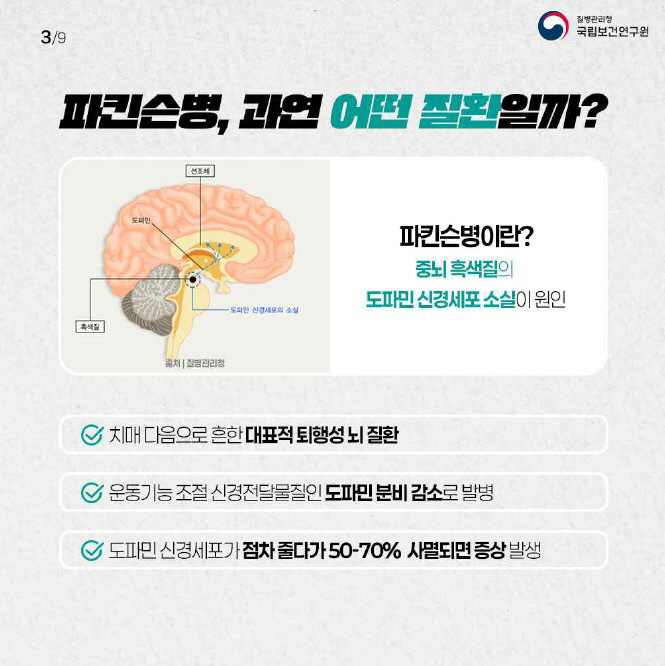The number of Parkinson's disease patients has increased by 14% over the past four years...Early recognition and management of Dr. Parkinson's app are important
Nov 10, 2025
|
Parkinson's disease is a chronic neurodegenerative disease that occurs when dopamine neurons in the midbrain gradually disappear.
In addition to various motor symptoms such as hand and foot tremors, muscle stiffness, and walking disorders, non-motor symptoms such as decreased olfactory function, sleep disorders, autonomic nervous system abnormalities, and cognitive decline are also accompanied, causing difficulties for patients.
Parkinson's disease is expected to increase in number of patients as the population ages. Therefore, it is pointed out that continuous research is needed for early diagnosis and prevention of Parkinson's disease, prognosis prediction, and treatment technology development.
Since 2021, the National Institute of Health of the Korea Centers for Disease Control and Prevention has established a cohort of Parkinson's disease patients through the 「BRIDGE」 and is conducting technology development research on diagnosis, prevention, and prognosis prediction through long-term follow-up.
The most important diagnostic test is for a doctor to listen to the patient's medical history and examine him because there is no test yet to confirm Parkinson's disease. Parkinson's disease can be difficult to diagnose in the early stages because symptoms appear slowly, so blood tests, brain magnetic resonance imaging, and nuclear medicine tests are performed for differential diagnosis.
A recent study confirmed that changes in olfactory function can be used as a key indicator for predicting the rate of cognitive decline in Parkinson's disease patients. In other words, changes in the ability to distinguish or detect odors can detect cognitive deterioration, which is expected to be of great help in early screening patients with high cognitive impairment such as dementia among Parkinson's disease patients and establishing customized treatment plans.
In addition, the National Institute of Health also produced and distributed the card news 'Parkinson's disease to enhance public understanding of Parkinson's disease. It introduced major symptoms of Parkinson's disease, treatments such as exercise therapy, and self-diagnosis methods through the Dr. Parkinson's app.
Lim Seung-kwan, Director of the Korea Centers for Disease Control and Prevention, said "Parkinson's disease is a rapidly increasing neurodegenerative disease in an aging society, and early diagnosis and systematic management are of paramount importance."The Korea Centers for Disease Control and Prevention is striving to identify the cause of the disease and develop precise diagnostic technology through cohort and intervention studies of Parkinson's disease patients, and will do its best to lead to research results that patients and their families can experience in the future."," he said.
This article was translated by Naver AI translator.














